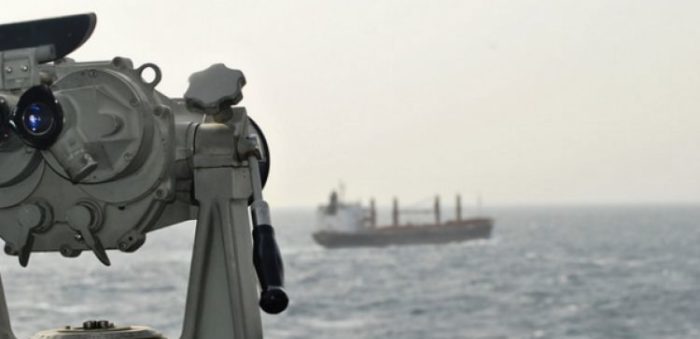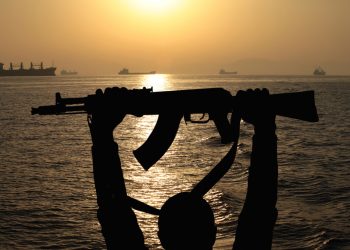Togolese President Faure Gnassingbe has stated that West African states’ failure to coordinate their response to piracy off their coastline is the reason why attacks are still apparent.
Bloomberg reports that while the 15 states and western partners signed a pact in 2013 to collaborate in the fight against piracy, the region still accounts for 40% of the world’s reported incidents.
What is more, ICC, IMB published a report on piracy and armed robbery in the timeframe from January 1 to June 30, 2019. Based on the report, the seas circling West Africa are the most dangerous for piracy, as of the 75 seafarers taken hostage onboard or kidnapped for ransom worldwide so far this year, 62 were captured in the Gulf of Guinea – off the coasts of Nigeria, Guinea, Togo, Benin and Cameroon.
In an interview with Bloomberg Television in Lome, Gnassingbe said that Togolese forces typically pursue pirates in their own waters, with a coastline of almost only 50 kilometers (31 miles), they need to hand over to a neighboring state to continue the chase, adding that
Where we are a little bit weak is how to cooperate. We need to cooperate and take some measures.
Additionally, BIMCO’s Head of Maritime Security, Jakob P. Larsen, has highlighted that there’s no reason to ‘turn a blind eye to piracy’ in the Gulf of Guinea. He supports the establishment of a contact group to fight piracy in the Gulf and protect the shipping industry.
According to Bloomberg, while Gnassingbe said the reforms have addressed the cause of the protests, the head of the Togolese Civil League, Farida Nabourema, described them as “surface” steps that were aimed at “setting the clock back to zero.”
Togo which holds a $5 billion economy which derives most of its income from agriculture and mining, is implementing regulatory reforms to reduce public debt and lure investments.
Gnassingbe further commented that over the next year, the government will seek to strengthen the judiciary to help with business processes and further implement digital platforms for the administration of taxes and payments.
Further to this, in January, the United Nations Secretary General’s office launched the ‘Activities of the United Nations Office for West Africa and the Sahel’ report, focusing on Nigeria loosing approximately $2.8 billion during 2018, as a result of crude oil and maritime crimes. Maritime crime, including piracy, dominated in the coast of West Africa and posed a big threat to peace and development in the region.
In June, members of the shipping community, Flag States and Agencies from Gulf of Guinea gathered at the IMO Headquarters for a day-long on Maritime Security in the Gulf of Guinea. Opening the symposium, Dr. Grahaeme Henderson, Chair of the UK Shipping Defence Advisory Committee and Vice President of Shell Shipping & Maritime, stated that the high level of piracy and armed robbery attacks in the Gulf of Guinea is not acceptable. However, such phenomena are taking place on a day to day basis, and urgent action is necessary.




























































